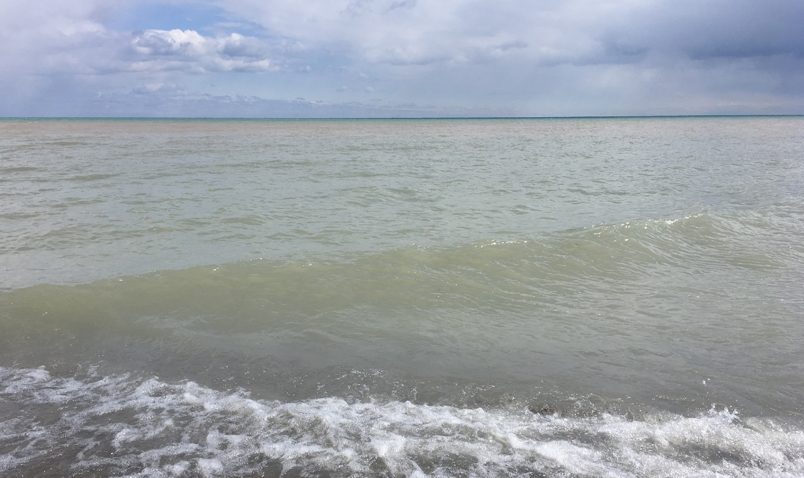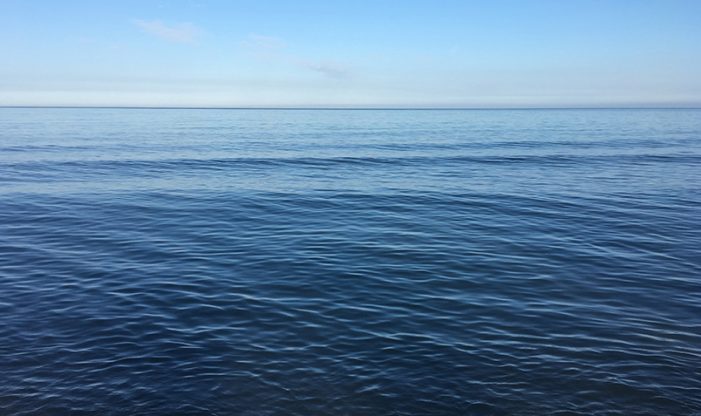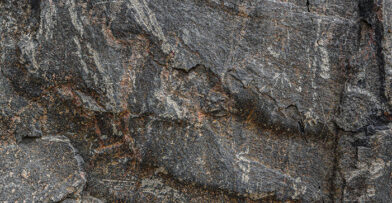Great Lake Michigan provides habitat for a variety of aquatic wildlife. The cold and deep waters are rich in oxygen, which have historically supported many fish species, such as Lake Trout, Yellow Perch, Lake Sturgeon, Lake Whitefish, and Muskellunge (the Wisconsin State Fish). Lake Michigan wildlife has provided great opportunities for the fishing industry and sportsmen alike. Lake Michigan has low algae production, which is a result of being a low-nutrition oligotrophic lake. Thus, it is an extremely clean lake, which is optimum to provide drinking water.
Hydrologically, Great Lakes Michigan and Huron are the same body of water, connected by the Straits of Mackinac at the top of the Michigan “mitten.” Lake Michigan takes its name from the Ojibwe word michi-gami, which translates to great water. With the exception of Lake Superior, all of the Great Lakes take their name from Native American words, or are named for the people living in the area when European explorers arrived.
A century of overfishing, followed by the unintentional introduction of invasive species, has caused Lake Michigan’s native fish populations to dwindle significantly. After the opening of the St. Lawrence Seaway, international ships began traveling inland more extensively. Inside the ballast tanks of the ships arrived species from similar habitats a world away, but which had no natural predators in this new environment.
Lake Michigan Wildlife and Overfishing, Salmon Introduction, Invasive Species
In the early 20th century, Sea lampreys arrived and began to attack the remaining large predator fish native to Lake Michigan. Lampreys have been nicknamed the “Vampire of the Great Lakes” as they attach their circular mouth to large fish and suck their blood. When the invasive Alewife fish arrived in 1949, there were no longer enough predator fish remaining to make a dent in the newly established population. At one point Alewives accounted for 80 percent of Lake Michigan’s entire biomass!
Faced with an enormous ecological and fiscal problem, the Wisconsin DNR introduced Coho and Chinook Salmon to Lake Michigan, hoping these fish would dine on the Alewives. Their plan was successful. Salmon have buoyed Lake Michigan as a fishery and as a tourist destination for shoreline towns. While salmon do have some favorable short-term human outcomes, and were intentionally introduced into this environment, ecologically, they are also an invasive species.

Future of the Great Lakes
Despite all of the threats facing Lake Michigan wildlife, as well as the other Great Lakes, there is hope. The Great Lakes Compact, signed in 2008, protects fresh water as a resource, requiring that all American states and Canadian provinces bordering the lakes must agree to any Great Lakes water withdrawals or diversions. The Alliance for the Great Lakes continues to push for strategies to keep the lakes clean. Multiple organizations partner to restock Lake Sturgeon, the longest-living fish in Lake Michigan, which was nearly extirpated by overfishing.
Invasive bottom dwelling mussels such as the Zebra and Quagga mussels also filter the lake’s nutrients to the bottom, changing the makeup of where the lake’s nutrients exist for Lake Michigan wildlife. This is part of the reason Lake Michigan looks clearer than it had in the past, and although it may appear to be positive, it is actually evidence of how invasive species are altering the ecology of the lake.
Our location on Lake Michigan informs everything we do as a nature center, and the experiences we are able to offer students, members, and visitors. We work to educate on topics involving native and invasive species, erosion, water quality, and how we can all improve the health of this aquatic ecosystem. We work to stabilize our bluffs and ravines to lessen the amount of soil eroding into Lake Michigan. Using native plantings and creating stormwater retention ponds and wetlands, we do our part to ensure the sustained health of Lake Michigan.
Countless generations have respected the invaluable ecological gift that is Lake Michigan. We all have the ability to nurture this resource for generations to come, and invite you to join us in celebrating the natural bounty that is Great Lake Michigan.


